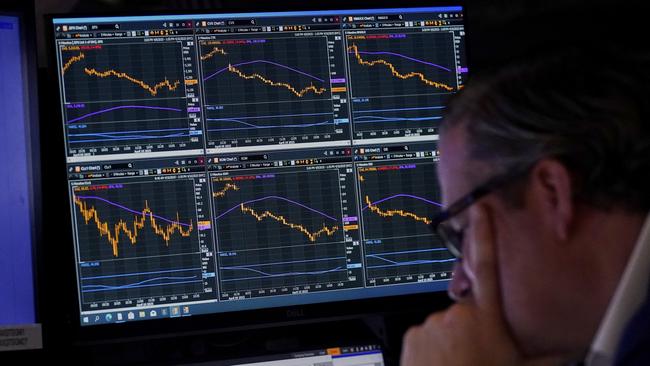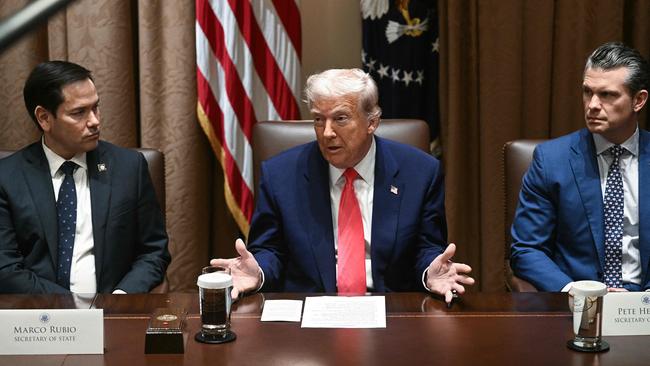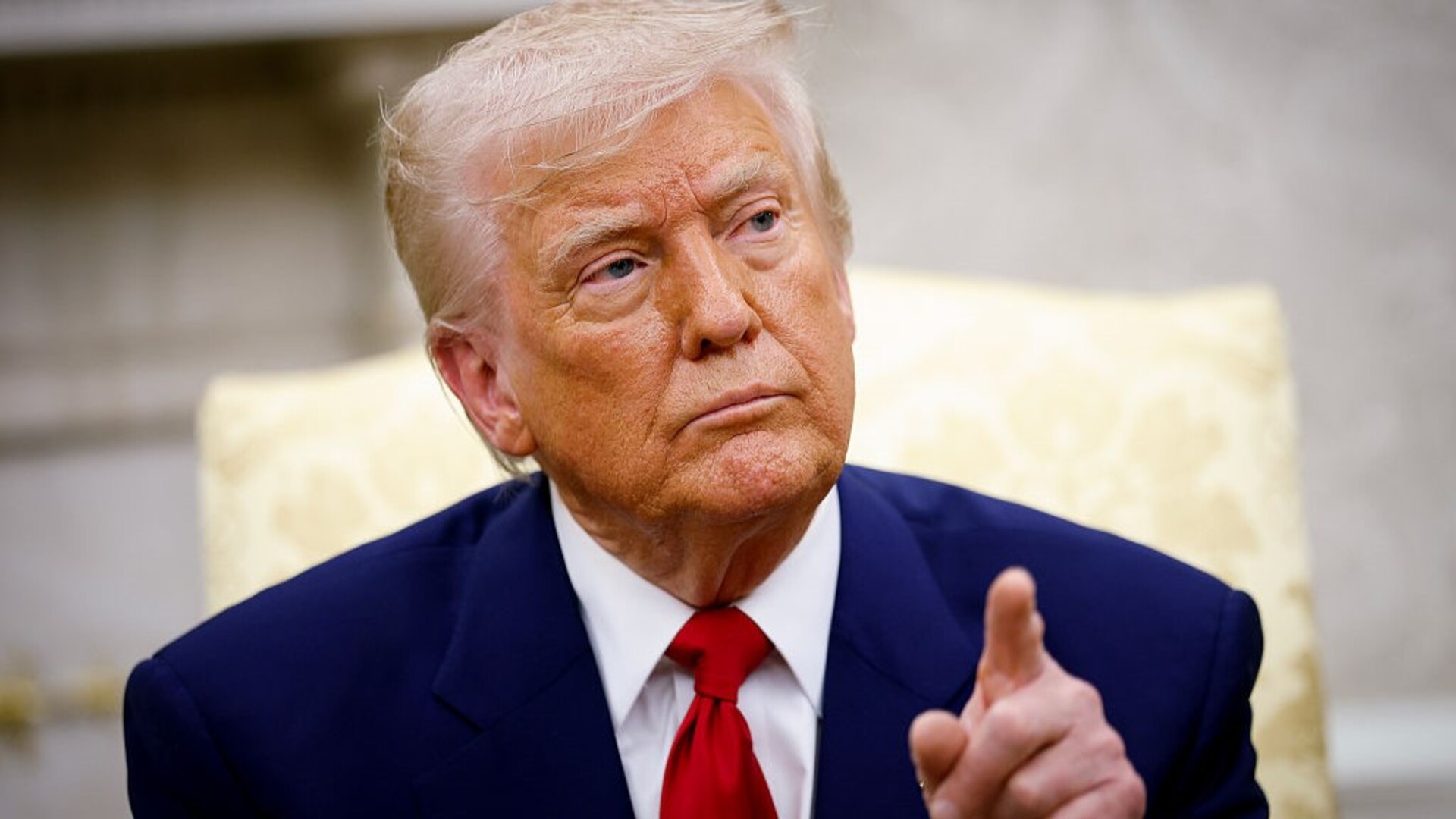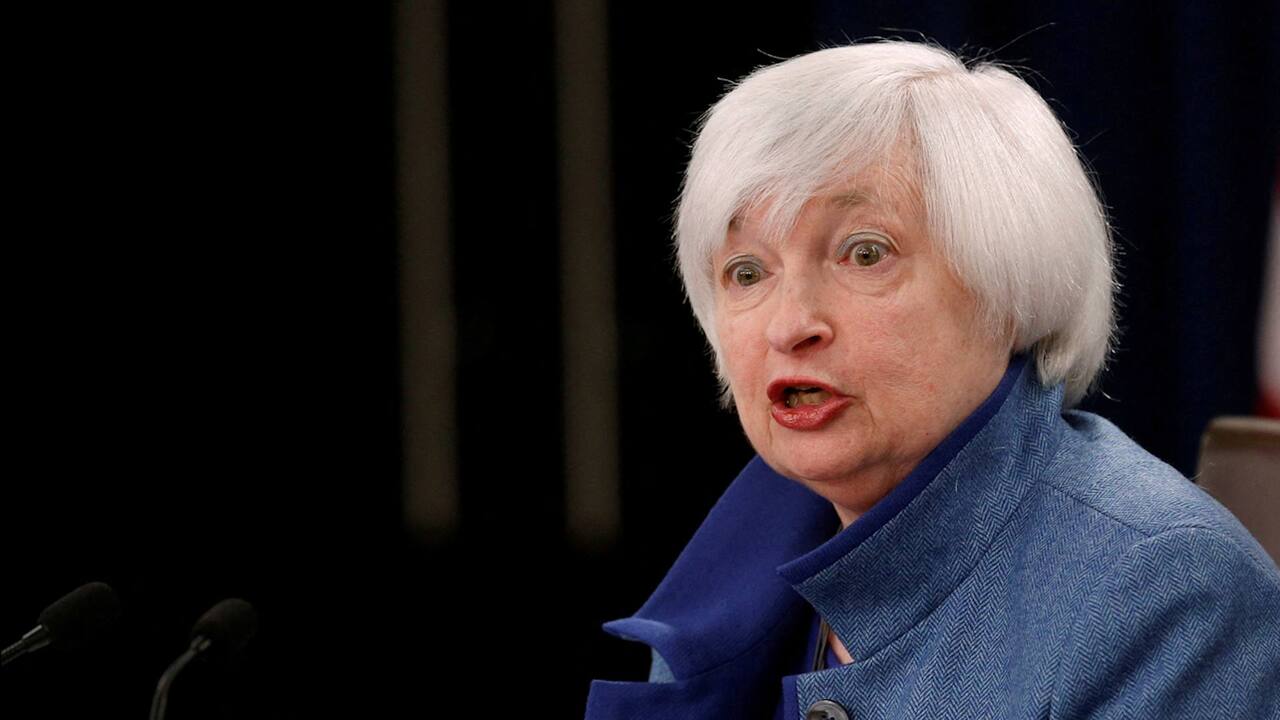Trump’s tariffs: US stocks fall as China trade war sinks in
US stock declines accelerated after the White House said tariffs imposed on China add up to 145 per cent and a former Fed boss called Trump’s shifting policy the worst hit to a well-functioning economy.

US stocks fell sharply Thursday, as investors sort through a global economic outlook that remains uncertain despite drastic improvements over the past 24 hours.
The declines accelerated after the White House said the tariffs imposed on China by US President Donald Trump in his second term add up to 145 per cent, not the 125 per cent it previously indicated. Stocks then pared those losses in afternoon trading.
The Nasdaq Composite, which posted its biggest gain in more than two decades on Wednesday, ended 4.3 per cent lower. The Dow Jones Industrial Average shed 1015 points, or 2.5 per cent.
President Trump said his tariffs might cause “transition problems,” but the country is in “very good shape”. “In the end, it’s going to be a beautiful thing,” he said during a cabinet meeting Thursday.
Bank stocks and tech shares were hit hard, retracing some of Wednesday’s epic gains. Wall Street’s fear gauge, the CBOE Volatility Index, was rising though far below levels of earlier this week. Gold hit a new record in a sign of rising anxiety.

The yield on benchmark 10-year Treasurys declined to 4.39 per cent.
Global markets soared overnight, catching up with Wednesday’s epic tariff-pause rally in New York. But there was an undertone of scepticism: While the worst may have been avoided, tariffs are still likely to weigh on growth and boost inflation. Betting markets still call a recession even money, for whatever that’s worth.
Wall Street parsed the latest consumer-price index, which showed inflation slowing more than expected, to a 2.4 per cent annual rate. Prices for shorter-dated Treasurys rallied, pushing down yields, following the CPI data.
On Thursday, the European Union said it will suspend its first wave of retaliatory duties against the US for 90 days to focus on negotiations after the Trump administration’s pause.
Trump’s reciprocal tariffs on nearly 100 nations took effect on Wednesday. Later, as he paused the levies on other nations, Trump said he had raised China’s import tax in response to its retaliatory measures.
In return, China said Thursday it would reduce imports of American movies, another bid to strike at US services exports in an escalating trade war between the two countries.
Goldman Sachs cut its growth outlook for China, citing the impact of tariffs. The bank now projects China’s economy will expand 4 per cent this year and 3.5 per cent in 2026.
President Trump said that countries who don’t reach trade deals with the US before the 90-day pause elapses risk being hit with additional tariffs.
Asked what would happen if a country fails to reach an agreement with the US, Trump said, “We’d go back to where we were.”
When a reporter asked for clarity about whether he would further extend the pause to allow for more time to negotiate, Trump said during a cabinet meeting at the White House, “We’ll see what happens at that time.”

Meanwhile, Democrats in Congress on Thursday called for investigations into whether people close to the Trump administration profited by using non-public information to make trades in the hours before President Trump’s tariff policy change.
Some of the biggest winners from yesterday’s rally have erased much of those gains in the latest session.
Delta Air Lines fell 9 per cent in the latest session after logging a 23 per cent gain the day before. Warner Bros. Discovery rose 20 per cent Wednesday and dropped roughly 13 per cent in latest trading.
Former Federal Reserve chair Janet Yellen said President Trump’s shifting tariff policy has increased the odds the US will enter into a recession.
The tariffs will likely fuel a cutback in business investment and consumer spending, which could trigger an economic downturn, she said Thursday on CNN. Yellen said the Trump administration’s tariff policies could cost the average US household $US4,000 a year. “This is the worst self-inflicted wound that I have ever seen an administration impose on a well-functioning economy,” said Yellen, who also served as Treasury Secretary during the Biden administration.

US government bond yields were down after a $US22bn auction of 30-year Treasurys met with solid demand from investors. Treasurys have sold off sharply this week amid worries that President Trump’s tariffs could lead to weaker foreign demand for US debt.
The 30-year auction had been seen as another test of the overall appetite for Treasurys after a generally successful auction of 10-year notes Wednesday. Yields of Treasurys fall when their prices rise.
The dollar extended its decline, down more than 1 per cent.
Overseas markets had closed higher, with the Nikkei rising 9 per cent and European stocks up around 4 per cent.
Dow Jones





To join the conversation, please log in. Don't have an account? Register
Join the conversation, you are commenting as Logout